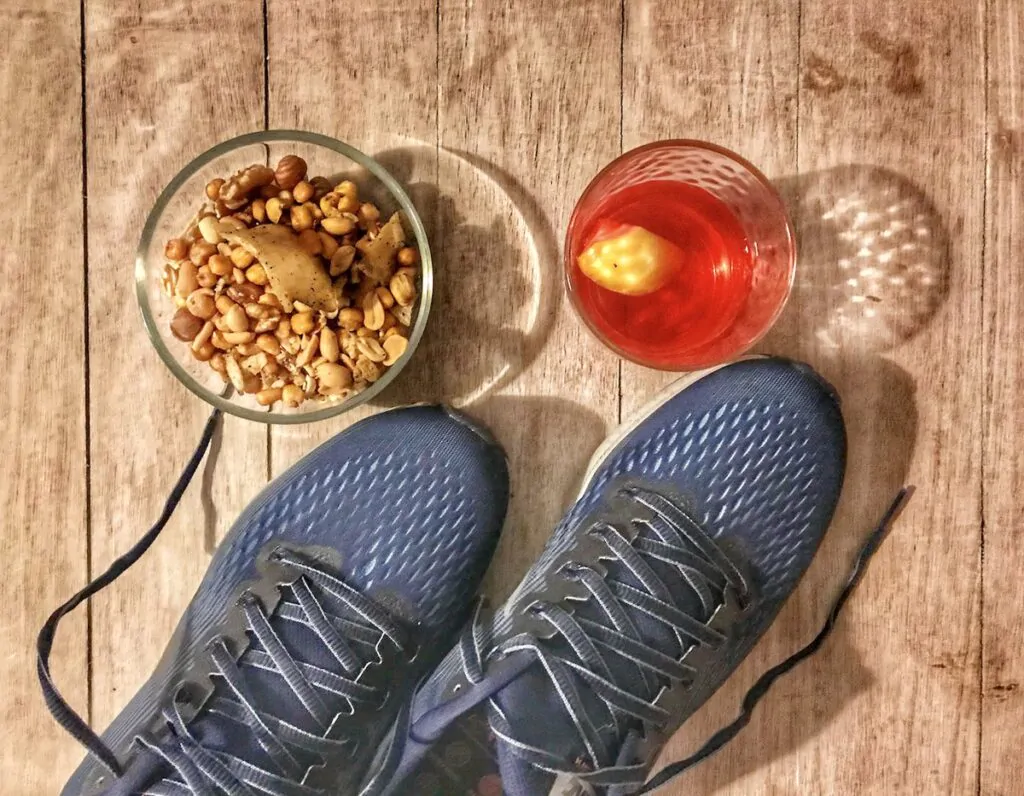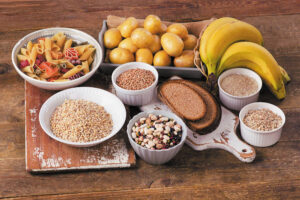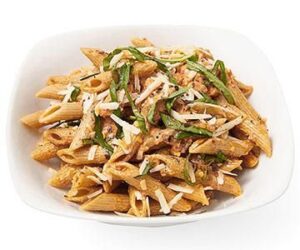article by Chiara Del Puppo.
The outcome of a race does not depend solely on how and how much you train. Knowing how to choose what to eat will make our running performance better and reduce the risk of injury, repairing muscles damaged by exertion and maintaining the psycho-physical health of our organism. It doesn’t matter whether you are an amateur neophyte or a professional athlete, in both cases the choice of the correct diet will play a fundamental role.
CARBOHYDRATES
Carbohydrates are a runner’s fuel, especially during long, high-intensity runs. They are a primary source of energy and help both fuel a run and replenish energy once you cross the finish line. They can be eaten before, during and after exercise.
TOO LOW?
A diet low in carbohydrates can become the cause of:
-lack of energy while running,
-loss of concentration,
-delayed recovery.
PASTA…
If you ask any runner what the best food is for training, most will answer: pasta!
Well, yes! Pasta is perfectly suited for replenishing energy in anticipation of training or competitions, because it can provide that slow-release energy, ideal for those doing marathons or long training sessions.
…AND NOT ONLY!
A diet of pasta alone, however, does not constitute a balanced nutritional plan, because in addition to replenishing energy, a runner must also think about repairing and rebuilding the muscular part, which becomes stressed and damaged as a result of training. This is why it is necessary to include in the diet the right amount of high-quality, low-fat protein, such as lean white meat and fish.
FRUIT AND VEGETABLES?
 Fruit and vegetables are also very important, especially if taken post-race, because they replenish the fluids and minerals lost during exercise, and introduce fibre and vitamins that are necessary for the well-being of the body and our immune system.
Fruit and vegetables are also very important, especially if taken post-race, because they replenish the fluids and minerals lost during exercise, and introduce fibre and vitamins that are necessary for the well-being of the body and our immune system.
WHAT SHOULD NOT BE MISSING FROM AN ATHLETE’S PANTRY!
OATS
 If you are planning a morning run, oats are ideal for breakfast: they provide plenty of carbohydrates and fibre and also have a low glycaemic level, which slowly reduces blood sugar levels, ensuring a prolonged supply of energy and a feeling of satiety that lasts for a long time. Considering that an average adult should get 50% of their energy from carbohydrates, oats are one of the most suitable foods for a balanced diet.
If you are planning a morning run, oats are ideal for breakfast: they provide plenty of carbohydrates and fibre and also have a low glycaemic level, which slowly reduces blood sugar levels, ensuring a prolonged supply of energy and a feeling of satiety that lasts for a long time. Considering that an average adult should get 50% of their energy from carbohydrates, oats are one of the most suitable foods for a balanced diet.
DRIED FRUIT
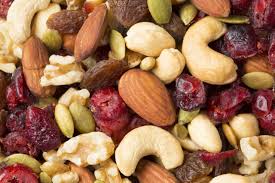 They are a veritable mine of nutrients such as plant proteins and polyunsaturated fatty acids (omega-6 and omega-3). Highly energetic and an excellent restorative, you can munch on them at breakfast or as a pre-workout snack or take them in the form of butter or cream (e.g. peanut butter, tahina, almond cream, etc.). Not to mention their richness in vitamins A and E, antioxidants, magnesium and potassium ideal for muscle recovery.
They are a veritable mine of nutrients such as plant proteins and polyunsaturated fatty acids (omega-6 and omega-3). Highly energetic and an excellent restorative, you can munch on them at breakfast or as a pre-workout snack or take them in the form of butter or cream (e.g. peanut butter, tahina, almond cream, etc.). Not to mention their richness in vitamins A and E, antioxidants, magnesium and potassium ideal for muscle recovery.
PEANUT BUTTER
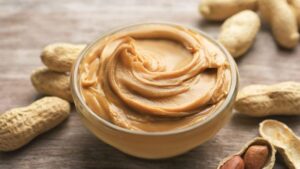 This refers to pure peanut butter, without added fats and oils. This butter is a good source of vitamin E, the most efficient antioxidant among vitamins. Although peanuts contain a lot of fat, making them high in calories, they are mostly monounsaturated and polyunsaturated fatty acids that lower blood cholesterol levels and boost the immune system, accelerating the post-run recovery process and preventing injuries. Peanuts are also rich in protein that promotes muscle growth. Peanut butter is ideal on a slice of wholemeal bread with a few slices of banana or apple, even late at night!
This refers to pure peanut butter, without added fats and oils. This butter is a good source of vitamin E, the most efficient antioxidant among vitamins. Although peanuts contain a lot of fat, making them high in calories, they are mostly monounsaturated and polyunsaturated fatty acids that lower blood cholesterol levels and boost the immune system, accelerating the post-run recovery process and preventing injuries. Peanuts are also rich in protein that promotes muscle growth. Peanut butter is ideal on a slice of wholemeal bread with a few slices of banana or apple, even late at night!
BANANAS
 If you need a boost of energy for your afternoon run, nothing beats a banana. High in carbohydrates and potassium, this fruit is ideal for long distance runs or when there are high temperatures and you sweat more, losing many important minerals. Potassium, as well as sodium and magnesium, compensates for these losses and lowers blood pressure at the same time.
If you need a boost of energy for your afternoon run, nothing beats a banana. High in carbohydrates and potassium, this fruit is ideal for long distance runs or when there are high temperatures and you sweat more, losing many important minerals. Potassium, as well as sodium and magnesium, compensates for these losses and lowers blood pressure at the same time.
DARK CHOCOLATE
 Those who exercise regularly every now and then deserve a treat. And there is nothing better than dark chocolate (with at least 70 per cent cocoa). It is nutritious, energising and rich in unsaturated fats, such as polyphenols and flavonoids, powerful antioxidants that fight inflammation. Rich in tryptophan, an amino acid precursor of seratonin (the good mood hormone) which stimulates the production of endorphins, improving mental concentration and physical performance.
Those who exercise regularly every now and then deserve a treat. And there is nothing better than dark chocolate (with at least 70 per cent cocoa). It is nutritious, energising and rich in unsaturated fats, such as polyphenols and flavonoids, powerful antioxidants that fight inflammation. Rich in tryptophan, an amino acid precursor of seratonin (the good mood hormone) which stimulates the production of endorphins, improving mental concentration and physical performance.
NATURAL YOGHURT
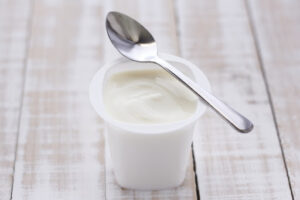 Yoghurt is the perfect combination of carbohydrates and protein. If eaten after a run, it accelerates the recovery process, thus protecting the muscles without forgetting that it is an important source of calcium for our bones. It is also a very important source of probiotics that safeguard the functioning of the intestine and strengthen the immune system.
Yoghurt is the perfect combination of carbohydrates and protein. If eaten after a run, it accelerates the recovery process, thus protecting the muscles without forgetting that it is an important source of calcium for our bones. It is also a very important source of probiotics that safeguard the functioning of the intestine and strengthen the immune system.
GREEN LEAFY VEGETABLES, CABBAGE, BROCCOLI
 Sources of fibre, calcium, folic acid and vitamin K, essential for strengthening bones and muscles. Also rich in quercitin, a substance that helps reduce inflammatory states especially after a muscle injury. Broccoli for example, as well as containing iron, is also rich in vitamin C and reduces post-workout fatigue and even prevents the onset of muscle pain.
Sources of fibre, calcium, folic acid and vitamin K, essential for strengthening bones and muscles. Also rich in quercitin, a substance that helps reduce inflammatory states especially after a muscle injury. Broccoli for example, as well as containing iron, is also rich in vitamin C and reduces post-workout fatigue and even prevents the onset of muscle pain.
EGGS
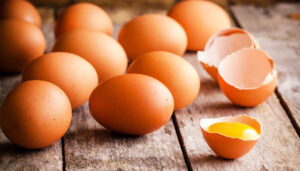 Easy to prepare and inexpensive, they are an excellent source of protein with all the essential amino acids, minerals and vitamin D. They are an elective protein source at breakfast, as well as excellent in the post-workout meal to stimulate protein synthesis and aid muscle recovery.
Easy to prepare and inexpensive, they are an excellent source of protein with all the essential amino acids, minerals and vitamin D. They are an elective protein source at breakfast, as well as excellent in the post-workout meal to stimulate protein synthesis and aid muscle recovery.
SWEET POTATO
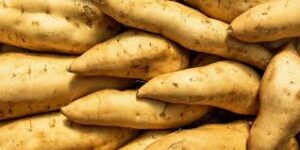 Also called American potato, it is an excellent source of complex carbohydrates, rich in fibre and with a high concentration of retinol, protein, amino acids and vitamins A, C and E. Furthermore, these potatoes have a much lower glycaemic index than normal potatoes, and are therefore preferable because they increase energy levels, moderate the appetite and satiate for longer.
Also called American potato, it is an excellent source of complex carbohydrates, rich in fibre and with a high concentration of retinol, protein, amino acids and vitamins A, C and E. Furthermore, these potatoes have a much lower glycaemic index than normal potatoes, and are therefore preferable because they increase energy levels, moderate the appetite and satiate for longer.
WATER
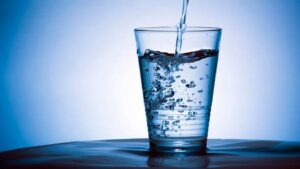 Even thewater is a fundamental element for the runner, as insufficient quantities of water can have significant consequences on performance and the body’s well-being. The runner loses considerable quantities of liquids, which are dissipated through sweating and breathing, and therefore need to replenish them constantly, even during a race.
Even thewater is a fundamental element for the runner, as insufficient quantities of water can have significant consequences on performance and the body’s well-being. The runner loses considerable quantities of liquids, which are dissipated through sweating and breathing, and therefore need to replenish them constantly, even during a race.
So remember to choose the right foods, which are light but nutritious and do not overload your stomach, compromising digestion, and remember to drink often during the day in order to run with the right level of hydration!
 ITA
ITA
 DEU
DEU
 FRA
FRA
 ESP
ESP




